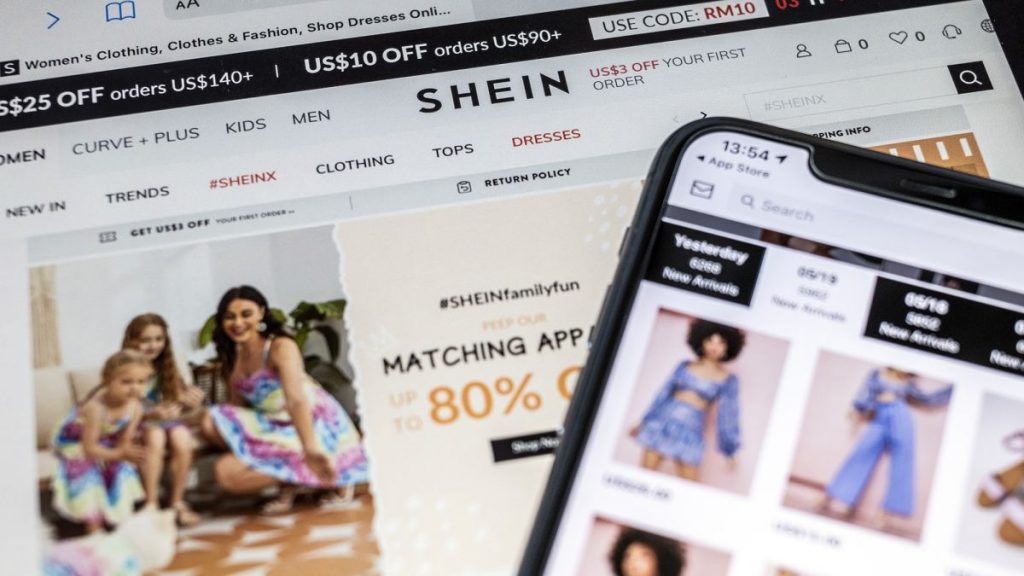Shein, the Chinese fast fashion giant that’s quickly become the third-most valuable startup in the world, is seeing a reality check with sales growth slowing from the lofty heights of the pandemic, just as it faces mounting pressure to live up to a $100 billion valuation.
Bloomberg reports that the online-only retailer of inexpensive clothes, beauty and lifestyle products has become a global phenomenon, with a following of mostly tweens and teenagers in the West making its app one of the most downloaded in the world.
No ad to show here.
Shein, however, saw annual sales growth slow to around 60% in 2021, according to people familiar with the business. That’s a steep plunge from an eye-popping 250% growth in 2020, when the arrival of Covid-19 turbocharged e-commerce demand from consumers stuck at home.
Overall, annual revenue reached at least $16 billion in 2021, up from $10 billion in 2020, said the people, who declined to be identified as they’re not authorized to speak publicly.
While revenue last year was overall in line with company expectations, what worries Shein’s top executives is that expansion was strong in the first half of the year, but decelerated at a worse-than-expected pace in the second half, with the slowdown continuing into 2022, according to the people.
The trend is reflected in transaction data in the US, Shein’s biggest market: for the first quarter, sales growth fell to 57%, down from a quarterly range of 105% to 264% in 2021, according to figures from Bloomberg Second Measure, a research firm which analyzes US consumer transactions to measure revenue.
While sales growth in the high double digits still outstrips fast-fashion giants like Hennes & Mauritz AB or Inditex SA’s Zara, Shein’s slowdown comes as it’s persuaded investors including General Atlantic that it is worth about $100 billion — more than the market capitalizations of H&M and Zara combined, and behind only ByteDance Ltd. and Ant Group on Crunchbase’s list of most valuable startups in the world.
That’s despite having no network of physical stores and a myriad of challenges, including the threat of legislation in the US that would erode a cost advantage which currently allows Shein to sell dresses, crop tops and bikinis for a fraction of competitors’ prices.
A representative for Shein said the company doesn’t comment on speculation about its business.
Shein became lockdown hit
“As one of the top online exporters in China, Shein’s slower growth shows the increasing challenges suffered by the entire sector,” said Wang Xin, head of the Shenzhen Cross-Border E-Commerce Association, an organization representing some 3,000 exporters. She cited the weakening yuan and growing geopolitical tension with the US as other headwinds.
The deceleration also comes as the company gets caught between the polar opposite pandemic approaches of the US and China. While life in America normalizes to pre-Covid norms and shoppers venture out more, China’s rolling Covid lockdowns as the country continues to try and stamp out all infection has disrupted Shein’s production and logistics operations in the southern province of Guangdong, its key sourcing hub, said the people.
Shein’s concentrated supply chain there, key to its fast deliveries and ability to churn out thousands of new, on-trend items every day, is now at risk of paralysis whenever pandemic containment measures are applied in the area, said Leng Yun, a Shanghai-based apparel sector consultant.
“It’s the hardest time for China’s exporters since early 2020, even more challenging than when the pandemic first started, as the supply chain is significantly hit in recent months,” said Leng.
U.S. listing
Other data show that the attention of the company’s young consumer base may be shifting away from Shein, which hired entertainers Lil Nas X and Katy Perry as brand ambassadors during the pandemic.
Web traffic to Shein.com, which more than doubled or even tripled during the first eight months of last year compared to the same period in 2020, dropped to low double-digit growth by late 2021, according to data provider Similarweb. Web traffic in April inched up just 8% compared to a year ago.
Shein’s rapid rise from low-cost Chinese apparel merchant to global fashion juggernaut in less than five years is a unique success story among consumer brands in the world’s No. 2 economy. The company has succeeded despite avoiding its home turf, the globe’s biggest consumer market, distancing itself from its China to focus on Western consumers.
As part of its latest $1 billion fundraising round, Shein told existing investors including Tiger Global Management, IDG Capital and Sequoia Capital China that it’s looking to list to list on a US bourse in as soon as two years, people familiar with the company’s thinking said.
Shein is considering a shift of corporate domicile to Singapore to pave the way for a US IPO, the people said.
The company’s Singapore-based entity, Roadget Business Pte. Ltd, is already its vehicle for signing contracts with customers, according to the terms and conditions page on Shein’s website.
Shein’s challenge in sustaining high growth reflects a wider issue for China’s cross-border e-commerce sector, which in 2020 pulled ahead of traditional exporters to expand at 40% thanks to tax breaks and demand from Western consumers. Last year, growth slowed to 24.5%.
“While Shein’s growth slows, many smaller players are struggling to survive,” said Wang. “We are no longer talking about a fast-growing sector filled with easy money as the business becomes more volatile and challenging with slimmer profits and higher risks.”
READ MORE: African B2B marketplace Kwely banks $1 million in seed round
